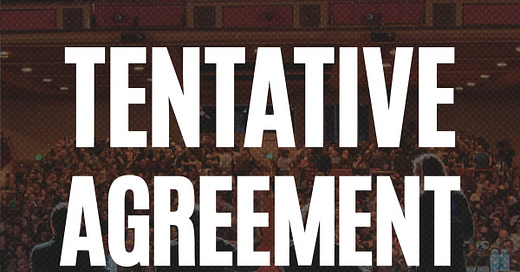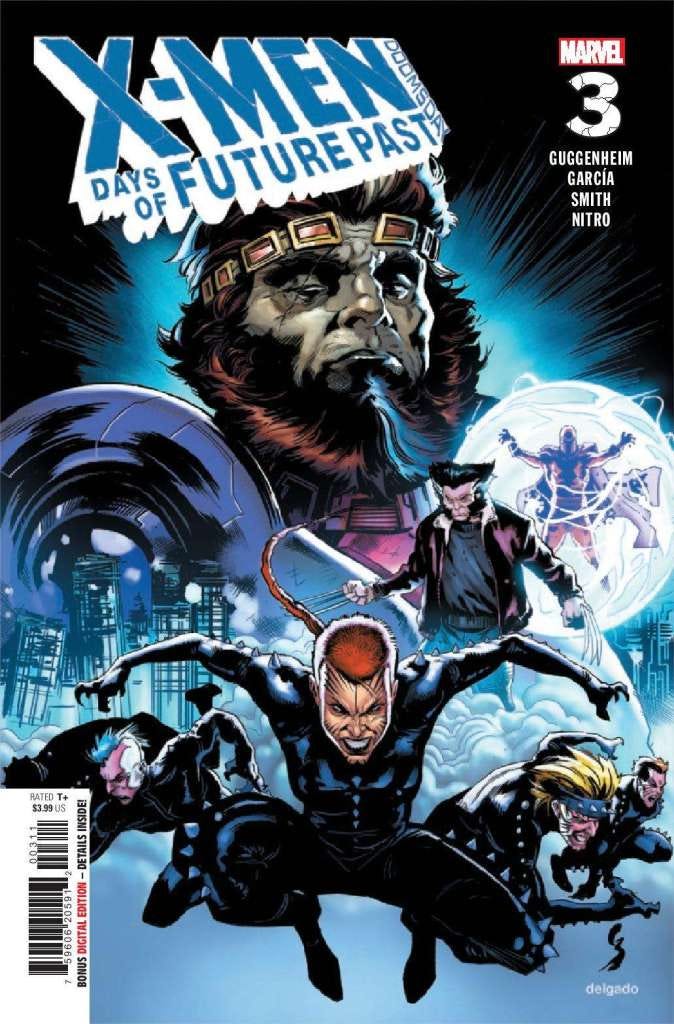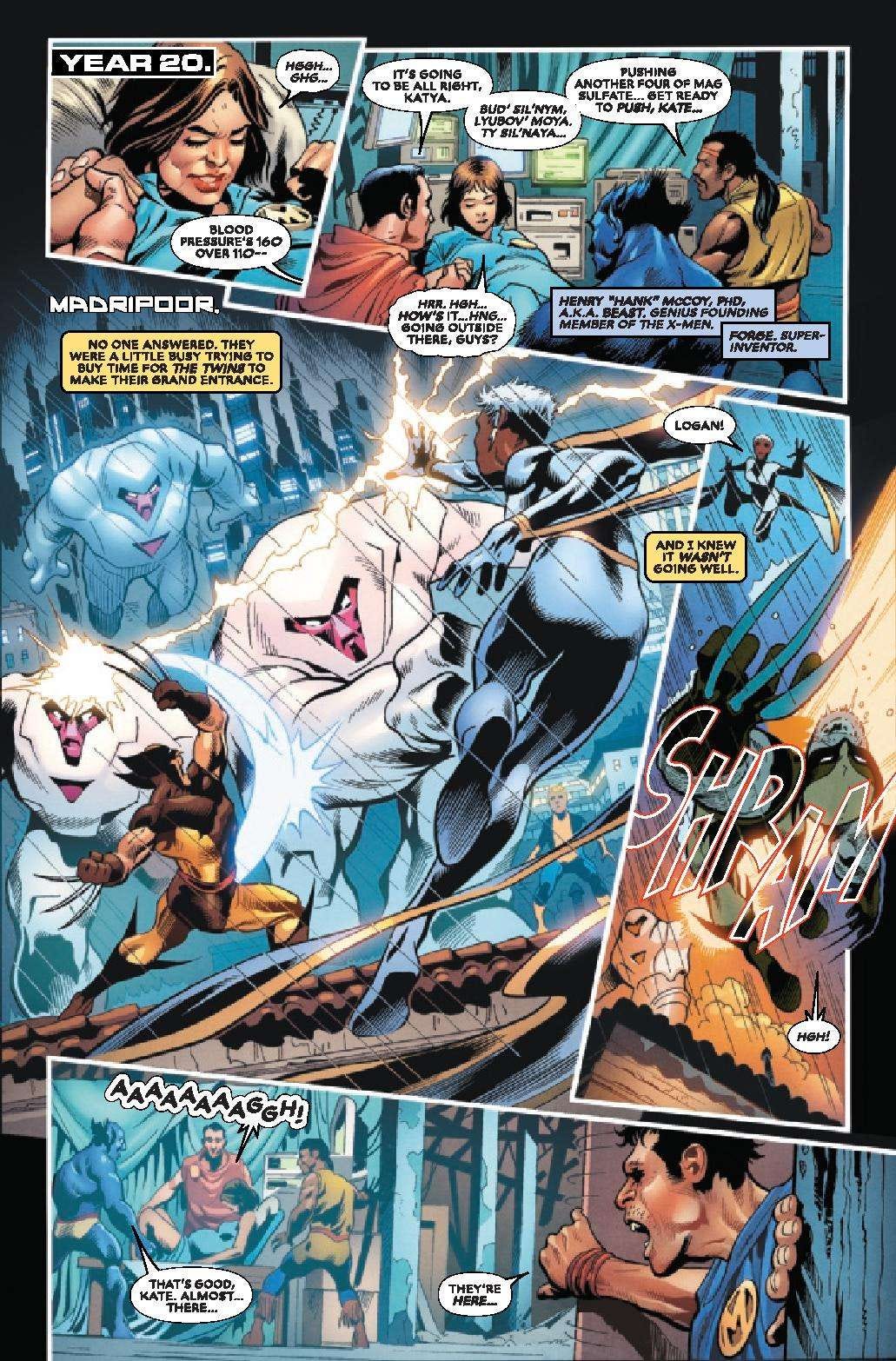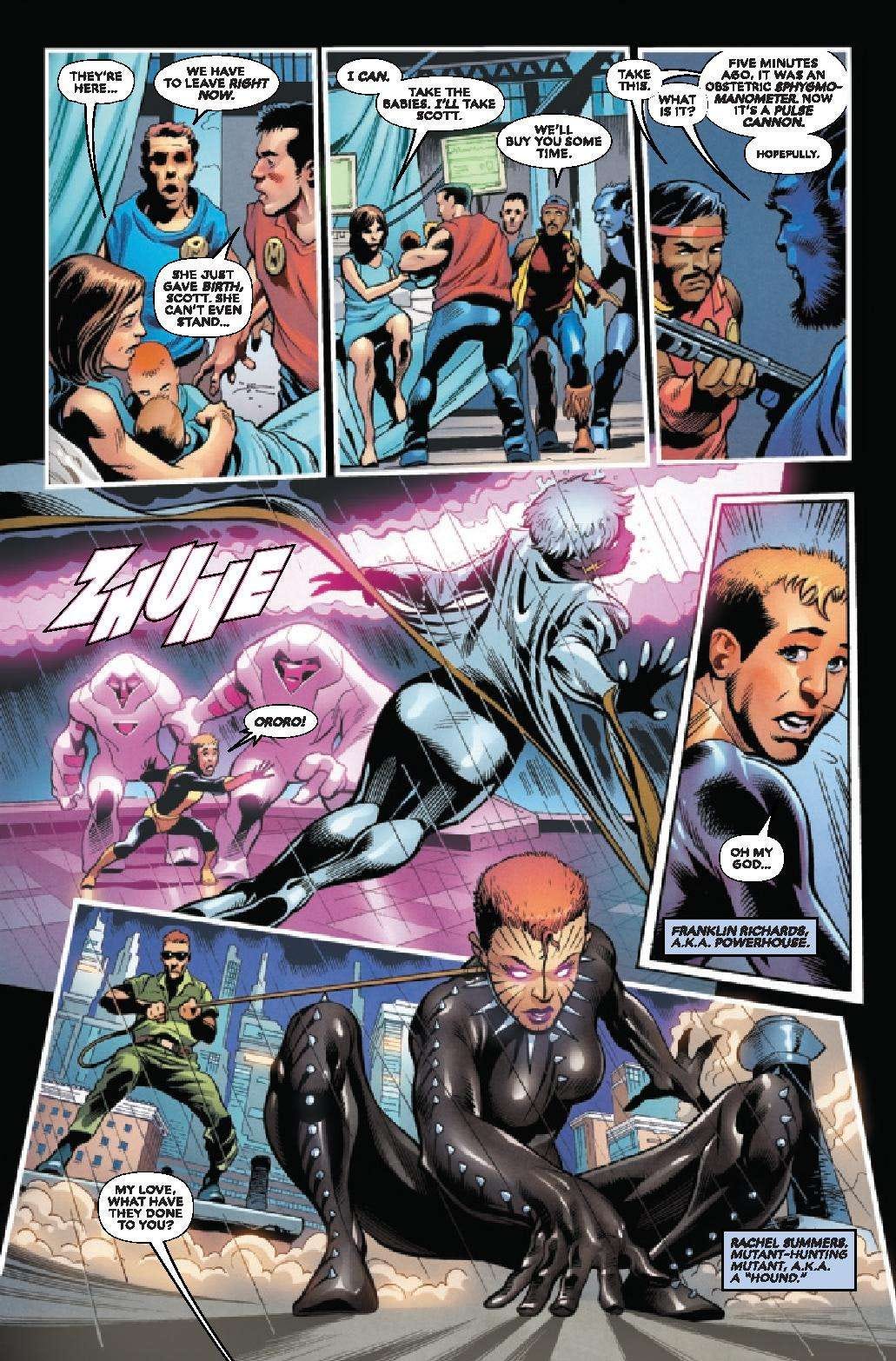Well, that was something.
Last night — on my birthday, as it turns out — the WGA announced that it had reached a tentative agreement with the AMPTP. The work stoppage remains in effect for now — pending ratification and/or the end of SAG’s strike, I’m unclear — but the war is finally over.
I have some thoughts on what comes next later in the newsletter.
X-MEN: DAYS OF FUTURE PAST - DOOMSDAY
Irrespective, of last night’s developments, I was gonna put out a mini version of the newsletter today because in Friday’s edition I happened to have (of course) forgotten that the penultimate issue of X-Men: Days of Future Past - Doomsday drops on Wednesday (9/27). You can check out a preview below courtesy of Graphic Policy:
PENCILS: Manuel Garcia; INKS: Cam Smith: COLORS: Yen Nitro; LETTERS: Clayton Cowles; COVER BY Geoff Shaw & Edwardo Delgado
WHERE DO WE GO FROM HERE?
While I was in New York last month, I met a guy who’d owned a restaurant out on Long Island. Today, he’s a bond trader. He lost his restaurant in the pandemic. But he wasn’t sad, despite the fact that the restaurant had been a family business for decades. I asked him why. He said, “The thing people need to understand about the people who work in the food service industry is that we didn’t know how miserable we were until [the pandemic-related] lockdown. We were stressed. We were over-worked. We worked weekends. We worked holidays. If I still had my restaurant, I wouldn’t be here tonight.”
To be clear, he didn’t mean that he’d be dead. He meant that he couldn’t go to the Bruce Springsteen concert where I’d met him. The concert was on a Sunday night and he would have been working had he still owned the restaurant.
He went on: “We were so busy, we didn’t have time to realize how unhappy we were. That’s why so many people left the food service business after lockdown ended.”
My prediction is that the strike will function for writers much the same way it did for folks in the food service industry: After five months of unemployment and inactivity, it might have started to dawn on them just how unhappy they were prior to the strike. I talked a bit about this phenomenon in a prior newsletter that you can read below:
WHAT WE’RE STRIKING FOR ISN’T WHY WE’RE STRIKING
IT’S OFFICIAL Today, it was announced that my second novel, Infinitum (f/k/a PROJECT FROST) is going to be published next summer by Lake Union Publishing. Here’s the Tweet from my editor, Chantelle Aimee Osman: (Nice to see Eli Stone getting top billing here.)
The TLDR of the above is: Even if writers got everything we were asking for (we didn’t) and the actors get everything they’re asking for (they won’t), we still have a lot of work — as an industry — to fix the problem of the business grinding people down to powder (among other problems). To put it another way: It took 5 years to break the industry; it’s going to take more than 5 months to fix it.
That said, I’m not predicting that writers will choose to leave the business like the gentleman I met at Springsteen. Rather, I have a profound desire that writers — yours truly included — will use the strike as a perspective reset like that former restaurant owner. We’re no longer the frog boiling to death and not knowing it. We’ve had five months out of the pot to assess why we’re unhappy and, hopefully, what we intend to do about it.
Here’s a list of the things I’d like to see happen in the coming months. I’m going to apologize in advance if it sounds very inside baseball. Unfortunately, I don’t have the time today to (to use a comic book term) “make it new reader friendly.”
We begin standing up for ourselves. We start saying no to endless notes and development that stretches out for years and years. (Politely and professionally, of course.)
We enlist our representatives in the foregoing. Lots of writers I met on the picket line loved to crow about how “agents’ interests are now aligned with ours” now that packaging has been eliminated. Well, it’s time to find out how true that is and empower them to fight for us.
We start sharing information with each other. Talking about money will be uncomfortable at first but knowledge is power and oftentimes the only way to beat back a bad offer is with knowledge of what writers of similar experience have received for similar projects.
As a corollary, we use this sharing of information as a weapon against Business Affairs’ favorite weapon: Precedent. How nice would it be if BA claims, “Sorry, but we never give that to anyone” and your reps could respond with, “Actually, we know for a fact that you gave it to So-and-so”?
Finally, if there’s a feeling that a deal or situation is wrong, toxic, abusive, or unfair, I hope that we all — again, myself included — remember what we’ve endured these past 5 months and that that memory empowers us to be just a little more stronger, a little more confident, and a lot more willing to stand up for ourselves.
I hope the foregoing doesn’t sound like me advocating for another war just as we’re returning to peacetime — I’m not. And I certainly hope that it doesn’t sound like I view the studios as our enemy — I don’t. The strike aside, the studios are our partners in both art and commerce. Unfortunately, one of the changes that has damaged the entertainment business in the past 5 to 7 years is that the good, professional, smart, and talented people we deal with are also getting ground down by the same corporatopoly that is afflicting us. So I’ll add a final hope to the list:
That we resume working with our friends and partners on the studio side to each other’s mutual benefit with mutual respect.
Bottom line, I love unions. I love collective bargaining. I love that people are more powerful together than they are alone. But no union can solve all that ails us. Some things, we just have to do for ourselves.
That said, I recognize that some may think they can’t do the foregoing because they don’t enjoy the same privileges that I do. To that, I’d suggest that those privileged among us be the tip of the spear, the first to step up and assert themselves. Once there are a few cracks in the dam, the rest will break in short order.
Be good to each other.
Best,
Marc
Encino, California









Hey Marc -- I've greatly enjoyed the columns on process/craft that you've written this summer. I had a "process" question on a different side of the equation. I've seen you quoted in quite a few different trades throughout the strike (always very astutely, I might add!). How does that end up happening and with such frequency? Are you on these reporters' go-to lists for comments? Are they reaching out to you via Twitter, through a publicist/reps, etc? And beyond that if you feel comfortable sharing -- do you feel like it's been helpful for your career to be such a public presence, even if you run the risk of being misquoted or misconstrued? (This is coming from a writer who purposely keeps a very low, Twitter-free profile). Thanks!
Hey that Jackpot script that you wrote for Sony, is that something that Sony is still interested in developing?